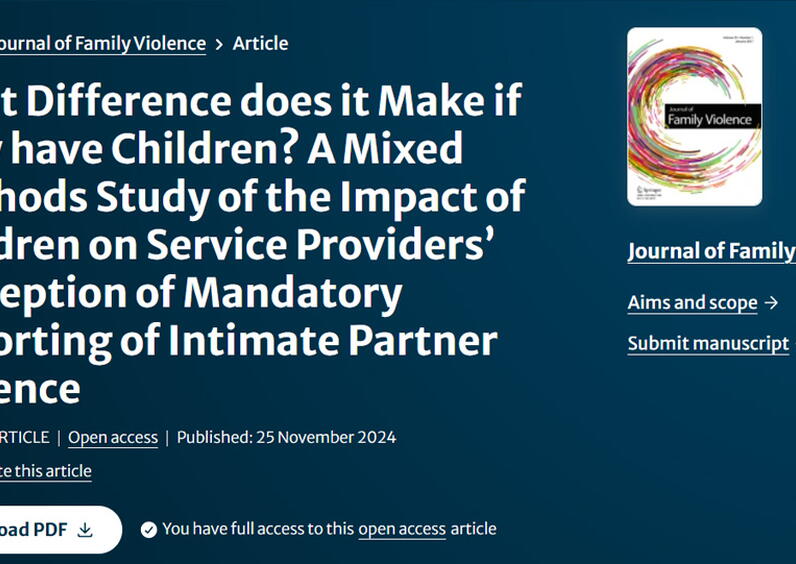Exploring experiences with mandatory reporting of intimate partner violence
To prevent and halt intimate partner violence (IPV) and intimate partner homicide (IPH), various countries and states have adopted legislation requiring or allowing service providers to report IPV to authorities. Yet, research on how service providers, along with IPV victims and perpetrators seeking help, experience mandatory reporting of IPV (MR-IPV) is limited.

Susanne Tilke Thon Kristiansen, Kjartan Leer-Salvesen, Anita Dyb Linge, Silje Louise Dahl, and Solveig Karin Bø Vatnar.
In this study, we explore experiences with MR-IPV in a Norwegian setting. We conducted individual semi-structured interviews with service providers from various professions, as well as with help-seeking IPV victims and perpetrators.
Our findings indicate that service providers aim to collaborate with IPV victims and perpetrators to prevent IPV rather than immediately reporting to the police, operating within the discretionary space provided by Norwegian legislation. IPV perpetrators reported experiencing a breach of trust when incidents were reported to the police. Notably, IPV victims revealed nuances concerning breaches of trust related to MR-IPV. Furthermore, IPV victims demonstrated ambivalence, expressing a need for interventions alongside a fear of inadequate help.
These results underscore the challenges that service providers face within the context of MR-IPV, particularly in distinguishing between situations calling for collaboration and those requiring immediate reporting to the police. In the article: https://link.springer.com/article/10.1007/s10896-024-00778-w published in Journal of Family Violence, you may further explore experiences with MR-IPV form the perspectives of service providers, help-seeking IPV victims, and IPV perpetrators. The authors are Susanne Tilke Thon Kristiansen, Kjartan Leer-Salvesen, Silje Louise Dahl, Anita Dyb Linge and Solveig Karin Bø Vatnar.



